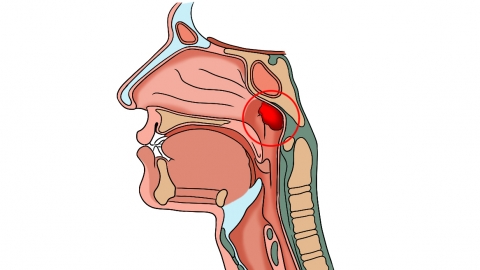Can enlarged adenoids cause nosebleeds?
Generally speaking, whether adenoid hypertrophy causes nosebleeds needs to be determined based on the specific condition of the illness. Details are as follows:

The adenoids are located at the junction of the top and posterior wall of the nasopharynx. Under normal physiological conditions, even if hypertrophy occurs, as long as there is no inflammatory irritation or compression of surrounding blood vessels and nasal mucosa is not directly affected, nosebleeds typically won't occur. Simple adenoid hypertrophy, without causing other nasal diseases, usually won't lead to abnormal bleeding if the nasal vascular structure and mucosal function remain stable, the vascular walls maintain good elasticity, and the mucosa remains intact without damage.
When adenoid hypertrophy triggers nasal inflammatory responses, the nasal mucosa may become congested and swollen. Prolonged inflammation weakens the resistance of the nasal mucosa, making it fragile and prone to damage, while also decreasing the elasticity of blood vessel walls. Meanwhile, adenoid hypertrophy can cause nasal obstruction and changes in breathing patterns, increasing airflow impact on the nasal mucosa, which may cause dryness and further increase the risk of bleeding.
In daily life, if symptoms of adenoid hypertrophy are noticed, timely medical examination is recommended to monitor nasal health, maintain good living habits, and reduce the likelihood of complications caused by adenoid hypertrophy.








